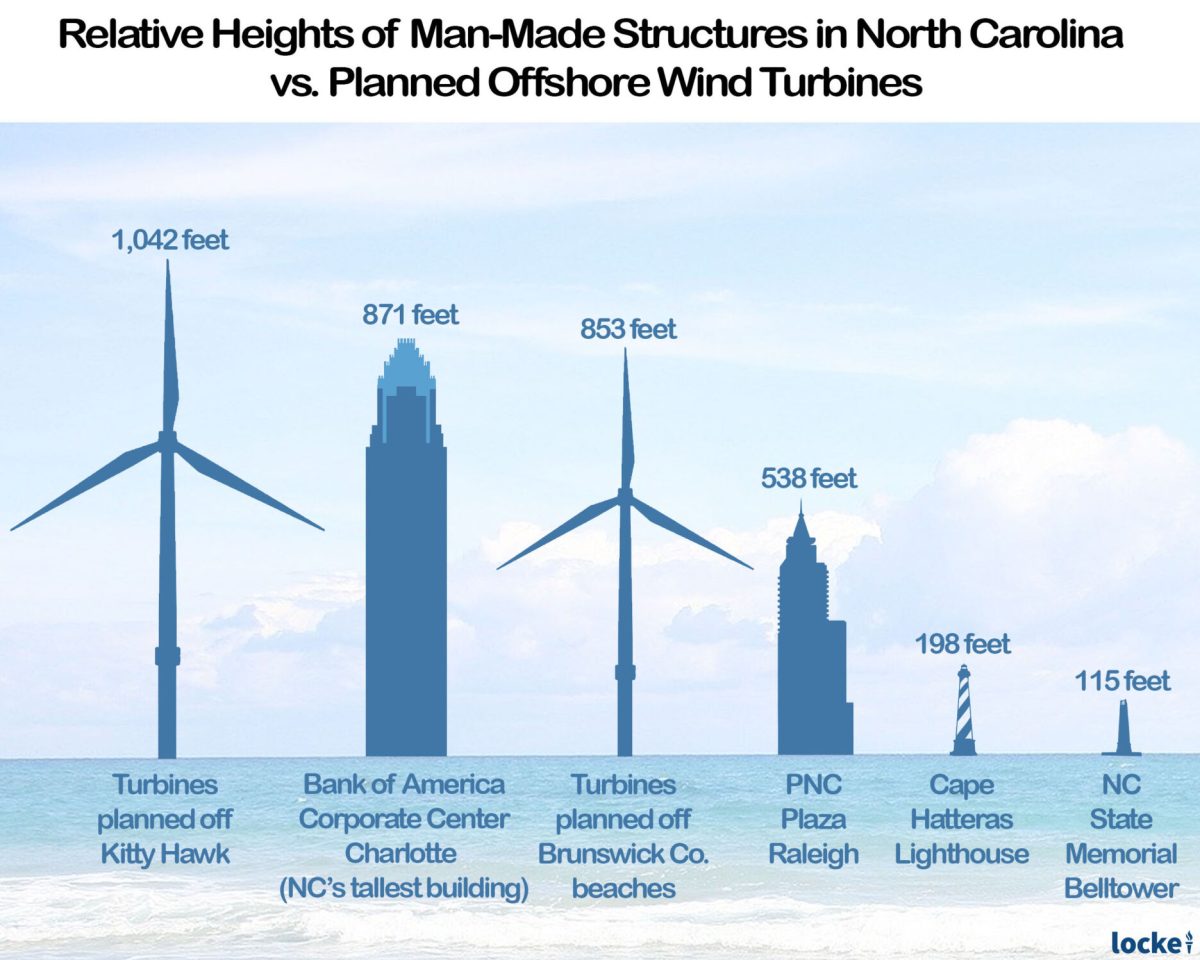
Opposition to offshore wind is stirring in Virginia Beach, but the focus is on a North Carolina proposal that will bring its power ashore at Sandbridge Beach, not the Dominion Energy Virginia project which is adjacent to the state’s largest city.
Private energy developer Avangrid Renewables LLC still needs a key easement from Virginia Beach City Council to proceed with its plans. That vote was delayed earlier this year and the company was asked to increase its local outreach and engagement. A key meeting in that effort will take place Thursday, May 4 at Municipal Center Building 1.
An information session will begin at 5:30 p.m., followed by a public hearing at 6:30 p.m. Representatives of the company will be present to address questions and concerns about the Kitty Hawk Wind (KWH) proposal, which is not as far along in the review process as Dominion’s larger Coastal Virginia Offshore Wind.
No purchase agreement for the project’s power output has been announced, for example. Unless it has turned up recently, no application has been filed with Virginia’s State Corporation Commission. There is a construction and operations plan filed last September with the Bureau of Ocean Energy Management which describes up to 69 turbines of up to 1,042 feet in height.
The Protect Sandbridge Beach Coalition plans to be at the hearing and is actively recruiting local members, with a petition and membership portal on its website. Its leadership recently reached out to coordinate with a national umbrella group, American Coalition for Ocean Protection, which includes the Thomas Jefferson Institute for Public Policy among its affiliates. ACOP is participating in a lawsuit challenging the first of the large Biden Administration-blessed projects, Vineyard Wind off Nantucket, Massachusetts.
The flyer Protect Sandbridge Beach it is circulating to drum up attendance next week cites a number of concerns among its bullet points, starting with the years-long disruption to tourism activity the transmission construction project would create. It cites: “No net benefit to the most impacted communities, only risk of impacting property values, tax revenues, rate increases and tourism. What are the unknown unintended consequences to our vital beach nourishment program and the environment?”
Beyond the specific Sandbridge local impact, Sandbridge resident Joe Bourne says the group’s members are expressing “a general concern about the pace of offshore wind development.” Bourne is a retired DuPont executive who worked for years in Scotland, and his impression is the wind projects in the North Sea have not lived up to their promises.
He can see Dominion’s two test turbines more than 25 miles from his home’s porch, clearly enough some nights to see the rotation of lights on the blade tips. “If the claim is you can’t see it, that’s not true,” he said. The next 170 turbines Dominion will build will be far taller than the first two, with wider arcs, very visible from the main Virginia Beach tourist area, especially from the upper hotel floors.
Concerns about the visual impact on North Carolina tourism have drawn fire from the John Locke Foundation in that state. Projects further south than Kitty Hawk Wind are much closer to shore.
Avangrid’s proposed first phase, Kitty Hawk North, is expected to have a nameplate capacity of 800 megawatts. It is about 27 miles off the Outer Banks, but the high voltage transmission cables to Sandbridge would be 36 miles long and come ashore right in the large parking lot at the north end of the complex, where the shopping and restaurants are located.
From there, power lines would extend to Corporate Landing for a connection to the main electrical grid’s backbone. The preferred power line route in the filed plan follows Sandbridge Road. Construction is slated to begin in early 2027.
Dominion’s wind power will come ashore on state property away from homes and businesses, creating less disruption. But its plans to connect to the grid are more detailed now, and its miles of major overhead lines are drawing local opposition. Bourne gives Dominion high marks for public engagement, and for making some adjustments to its design. Avangrid has not been as responsive, he said. That was one reason Virginia Beach City Council punted on the easement request in February.
If its website is up to date, the last time the region’s newspaper wrote about the opposition to the project was last summer, before the updated construction plan was filed and before the first discussion at Virginia Beach City Council. The region’s governments and business community still have high hopes of becoming the construction and operations hub for many offshore wind complexes, which has been the focus of multiple supportive comments filed with BOEM about the Dominion project.
Bourne said he and others are going group by group to present the case that offshore wind is not going to be a boon and has major drawbacks. Ultimately, he thinks that the longer the build-out takes, the more financial support may dry up. Several of the wind developers are showing signs of financial stress. Avangrid is one of the firms seeking to renegotiate previously made U.S. power purchase deals.
“People lie, governments lie, but the money tells the truth”, Bourne said. Money is the “unbiased referee.”
- Trump’s Energy Promises Face Hurdles in Anti-Hydrocarbon Virginia - November 20, 2024
- No, RTD, Hurricane Helene Not Proof of ‘Climate Change’ - October 3, 2024
- A Transparent Effort to Increase General Assembly Authority to Eliminate Hydrocarbon Fuels - September 26, 2024
